- Home
- Muriel Spark
The Abbess of Crewe Page 4
The Abbess of Crewe Read online
Page 4
‘Gertrude,’ says Alexandra. ‘Do bear in mind that
Tiny and cheerful,
And neat as can be,
Whatever Miss T. eats
Turns into Miss T.’
But Gertrude has hung up.
‘Will she come home?’ says Walburga when Alexandra turns from the telephone.
‘I doubt it,’ says Alexandra. ‘She is having a great success with the cannibals and has administered the Kiss of Peace according to the photograph in today’s Daily Mirror. Meanwhile the vegetarian tribes have guaranteed to annihilate the cannibals, should they display any desire to roast her.’
‘She will be in trouble with Rome,’ says Mildred, ‘if she absents herself from the Abbey much longer. A mission takes so long and no longer according to the vows of this Abbey.’
‘Gertrude fears neither Pope nor man,’ says Alexandra. ‘Call Sister Winifrede on the walkie-talkie. Tell Winifrede to come to the Abbess’s parlour.’ She leads the way into the parlour which is still furnished in the style of the late Hildegarde, who had a passion for autumn tints. The carpet is figured with fallen leaves and the wallpaper is a faded glow of browns and golds. The three nuns recline in the greenish-brown plush chairs while Winifrede is summoned and presently appears before them, newly startled out of a snooze.
Alexandra, so soon to be clothed in white, fetches from her black pocket a bunch of keys. ‘Winifrede, ’ she says, indicating one of the keys, ‘this is the key to the private library. Open it up and bring me Machiavelli’s Art of War.’ Alexandra then selects another key. ‘And while you are about it go to my cell and open my locked cupboard. In it you will find my jar of pâté, some fine little biscuits and a bottle of my Le Corton, 1959. Prepare a tray for four and bring it here with the book.’
‘Alexandra,’ whines Winifrede, ‘why not get one of the kitchen nuns to prepare the tray?’
‘On no account,’ says Alexandra. ‘Do it yourself. You’ll get your share.’
‘The kitchen nuns are so ugly,’ says Mildred.
‘And such common little beasts,’ says Walburga.
‘Very true,’ says Winifrede agreeably and departs on her errands.
‘Winifrede is useful,’ says Alexandra.
‘We can always make use of Winifrede,’ says Mildred.
‘Highly dependable,’ says Walburga. ‘She’ll come in useful when we really come to grips with Felicity.’
‘That, of course, is for you two nuns to decide,’ Alexandra says. ‘As a highly obvious candidate for the Abbey of Crewe, plainly I can take no personal part in whatever you have in mind.’
‘Really, I have nothing in mind,’ Mildred says.
‘Nor I,’ says Walburga. ‘Not as yet.’
‘It will come to you,’ says Alexandra. ‘I see no reason why I shouldn’t start now arranging for this room to be newly done over. A green theme, I think. I’m attached to green. An idea of how to proceed against Felicity will occur to you quite soon, I imagine, tomorrow or the day after, between the hours of Matins and Lauds, or Lauds and Prime, or Prime and Terce, or, maybe, between Terce and Sext, Sext and None, None and Vespers, or between Vespers and Compline.’ Winifrede returns, tall and handsome as a transvested butler, bearing a tray laden with their private snack for four. She sets it on a table and, fishing into her pocket, produces a book and Alexandra’s keys which she hands over.
They are seated at the table, and the wine is poured. ‘Shall I say grace?’ says fair-faced, round-eyed Winifrede, although the others have already started to scoop daintily at the pâté with their pearl-handled knives. ‘Oh, it isn’t necessary,’ says Alexandra, spreading the pâté on her fine wafer, ‘there’s nothing wrong with my food.’
Winifrede, with her eyes like two capital Os, leans forward and confides, ‘I’ve seen the print of that tele-photo of Felicity with Thomas this morning.’
‘I, too,’ says Walburga. ‘I don’t understand these fresh-air fiends when the traditional linen cupboard is so much better heated and equipped.’
Alexandra says, ‘I glanced at the negative. Since when my spirit is impure. It does not become them. Only the beautiful should make love when they are likely to be photographed.’
‘The double monasteries of the olden days were so discreet and so well ordered,’ Mildred says, wistfully.
‘I intend to reinstate the system,’ says Alexandra. ‘If I am the Abbess of Crewe for a few years I shall see to it that each nun has her own private chaplain, as in the days of my ancestor St Gilbert, Rector of Sempringham. The nuns will have each her Jesuit. The lay brothers, who will take the place of domestic nuns as in the eleventh century, will be Cistercians, which is to say, bound to silence. Now, if you please, Walburga, let’s consult The Art of War because time is passing and the sands are running out.’
Alexandra gracefully pushes back her plate and leans in her chair, one elbow resting on the back of it and her long body arranged the better to finger through the pages of the book placed on the table before her. The white coifs meet in a tent of concentration above the book where Alexandra’s fingers trace the passages to be well noted.
‘It is written,’ says Alexandra with her lovely index finger on the margin as she reads:
After you have consulted many about what you ought to do, confer with very few concerning what you are actually resolved to do.
The bell rings for Matins, and Alexandra closes the book. Walburga leads the way while Alexandra counsels them, ‘Sisters, be vigilant, be sober. This is a monastery under threat, and we must pray to Almighty God for our strength.’
‘We can’t do more,’ says Mildred.
‘To do less would be cheap,’ Walburga says.
‘We are corrupt by our nature in the Fall of Man,’ Alexandra says. ‘It was well exclaimed by St Augustine, “O happy fault to merit such a Redeemer! O felix culpa!”’
‘Amen,’ respond the three companions.
They start to descend the stairs. ‘O happy flaw!’ says Alexandra.
Felicity is already waiting with her assembled supporters and the anonymous files of dark-shaped nuns when the three descend, graceful with Walburga in the lead, each one of them so nobly made and well put together. One by one they take their capes and file across the midnight path to their chapel.
Felicity slips aside, waiting with her cloak folded in the dark air until the community has entered the chapel. Then, while the voices start to sound in the ebb and flow of the plainchant, she makes her way back across the grass to the house quickly as a water bird skimming a pond. Felicity is up the great staircase, she is in the Abbess’s parlour and switches on the light. Her little face looks at the remains of the little feast; she spits at it like an exasperated beggar-gipsy, and she breathes a cat’s hiss to see such luxury spent. But soon she is about her business, through the door, and is occupied with the apparatus of the green telephone.
At the end of a long ring someone answers.
‘Gertrude!’ she says. ‘Can that really be you?’
‘I was just about to leave,’ Gertrude says. The helicopter is waiting.’
‘Gertrude, you’re doing such marvellous work. We hear —’
‘Is that all you want to say?’ Gertrude says.
‘Gertrude, this convent is a hotbed of corruption and hypocrisy. I want to change everything and a lot of the nuns agree with me. We want to break free. We want justice.’
‘Sister, be still, be sober,’ Gertrude says. ‘Justice may be done but on no account should it be seen to be done. It’s always a fatal undertaking. You’ll bring down the whole community in ruins.’
‘Oh, Gertrude, we believe in love in freedom and freedom in love.’
‘That can be arranged,’ Gertrude says.
‘But I have a man in my life now, Gertrude. What can a poor nun do with a man?’
‘Invariably, a man you feed both ends,’ Gertrude says. ‘You have to learn to cook and to do the other.’
The telephone then roars like a wild be
ast.
‘What’s going on, Gertrude?’
‘The helicopter,’ Gertrude says, and hangs up.
‘Read it aloud to them,’ Alexandra says. Once more it is lunch time. ‘Let it never be said that we concealed our intentions. Our nuns are too bemused to take it in and those who are for Felicity have gone morbid with their sentimental Jesusism. Let it be read aloud. If they have ears to hear, let them hear.’ The kitchen nuns float with their trays along the aisles between the refectory tables, dispensing sieved nettles and mashed potatoes.
Winifrede stands at the lectern. She starts to read, announcing Ecclesiasticus, chapter 34, verse 1:
Fools are cheated by vain hopes, buoyed up with the fancies of a dream. Wouldst thou heed such lying visions? Better clutch at shadows, or chase the wind. Nought thou seest in a dream but symbols; man is but face to face with his own image. As well may foul thing cleanse, as false thing give thee a true warning. Out upon the folly of them, pretended divination, and cheating omen, and wizard’s dream! Heart of woman in her pangs is not more fanciful. Unless it be some manifestation the most High has sent thee, pay no heed to any such; trust in dreams has crazed the wits of many, and brought them to their ruin. Believe rather the law’s promises, that cannot miss their fulfilment, the wisdom that trusty counsellors shall make clear to thee.
Winifrede stops to turn the pages to the next place marked with a book-marker elaborately embroidered from the sewing-room. Her eyes remotely sweep the length of the room, where the kitchen nuns are bearing jugs up the aisles, pouring water which has been heated for encouragement into the nuns’ beakers. The forks move to the faces and the mouths open to receive the food. These are all the nuns in the convent, with the exception of kitchen nuns and the novices who do not count and the senior nuns who do. A less edifying crowd of human life it would be difficult to find; either they have become so or they always were so; at any rate, they are in fact a very poor lot, all the more since they do not think so for a moment. Up pop the forks, open go the mouths, in slide the nettles and the potato mash. They raise to their frightful little lips the steaming beakers of water and they sip as if fancying they are partaking of the warm sap of human experience, ripe for Felicity’s liberation. Anyway, the good Winifrede reads on, announcing Ecclesiastes, chapter 9, verse 11. ‘Sisters, hear again,’ she says, ‘the wise confessions of Solomon’:
Then my thought took a fresh turn; man’s art does not avail, here beneath the sun, to win the race for the swift, or the battle for the strong, a livelihood for wisdom, riches for great learning, or for the craftsman thanks; chance and the moment rule all.
The kitchen staff is gliding alongside the tables now, removing the empty plates and replacing them with saucers of wholesome and filling sponge pudding which many more deserving cases than the nuns would be glad of. Winifrede sips from her own glass of water, which is cold, puts it down and bends her eyes to the next book marked with its elaborate markers, passage by passage, which she exchanges with the good book on her lectern. She dutifully removes a slip of paper from the inside cover and almost intelligent-looking in this company reads it aloud in her ever-keening voice: ‘Further words of wisdom from one of our Faith’:
If you suspect any person in your army of giving the enemy intelligence of your designs, you cannot do better than avail yourself of his treachery, by seeming to trust him with some secret resolution which you intend to execute, whilst you carefully conceal your real design; by which, perhaps, you may discover the traitor, and lead the enemy into an error that may possibly end in their destruction …
In order to penetrate into the secret designs, and discover the condition of an enemy, some have sent ambassadors to them with skilful and experienced officers in their train, dressed like the rest of their attendants …
As to private discords amongst your soldiers, the only remedy is to expose them to some danger, for in such cases fear generally unites them …
‘Here endeth the reading,’ Winifrede says, looking stupidly round the still more stupid assembly into whose ears the words have come and from which they have gone. The meal over, the nuns’ hands are folded.
‘Amen,’ they say.
‘Sisters, be vigilant, be sober.’
‘Amen.’
Alexandra sits in the downstairs parlour where visitors are generally received. She has laid aside the copy of The Discourses of Machiavelli which she has been reading while awaiting the arrival of her two clergymen friends; these are now ushered in, accompanied by Mildred and Walburga.
Splendid Alexandra rises and stands, quiet and still, while they approach. It is Walburga, on account of being the Prioress, who asks the company to be seated.
‘Father Jesuits,’ says Walburga, ‘our Sister Alexandra will speak.’
It is summer outside, and some of the old-fashioned petticoat roses that climb the walls of the Abbey look into the window at the scene, where Alexandra sits, one arm resting on the table, her head pensively inclining towards it. The self-controlled English sun makes leafy shadows fall on this polished table and across the floor. A bee importunes at the window-pane. The parlour is cool and fresh. A working nun can be seen outside labouring along with two pails, one of them probably unnecessary; and all things keep time with the season.
Walburga sits apart, smiling a little for sociability, with her eye on the door wherein soon enters the tray of afternoon tea, so premeditated in every delicious particular as to make the nun who bears it, leaves it, and goes away less noteworthy than ever.
The two men accept the cups of tea, the plates and the little lace-edged napkins from the sewing-room which Mildred takes over to them. They choose from among the cress sandwiches, the golden shortbread and the pastel-coloured petit fours. Both men are grey-haired, of about the same middle age as the three nuns. Alexandra refuses tea with a mannerly inclination of her body from the waist. These Jesuits are her friends. Father Baudouin is big and over-heavy with a face full of high blood-pressure; his companion, Father Maximilian, is more handsome, classic-featured and grave. They watch Alexandra attentively as her words fall in with the silvery acoustics of the tea-spoons.
‘Fathers, there are vast populations in the world which are dying or doomed to die through famine, under-nourishment and disease; people continue to make war, and will not stop, but rather prefer to send their young children into battle to be maimed or to die; political fanatics terrorize indiscriminately; tyrannous states are overthrown and replaced by worse tyrannies; the human race is possessed of a universal dementia; and it is at such a moment as this, Fathers, that your brother-Jesuit Thomas has taken to screwing our Sister Felicity by night under the poplars, so that her mind is given over to nothing else but to induce our nuns to follow her example in the name of freedom. They thought they had liberty till Felicity told them they had not. And now she aspires to bear the crozier of the Abbess of Crewe. Fathers, I suggest you discuss this scandal and what you propose to do about it with my two Sisters, because it is beyond me and beneath me.’
Alexandra rises and goes to the door, moving like a Maharajah aloft on his elephant. The Jesuits seem distressed.
‘Sister Alexandra,’ says the larger Jesuit, Baudouin, as he opens the door for her, ‘you know there’s very little we can do about Thomas. Alexandra —’
‘Then do that very little,’ she says in the voice of one whose longanimity foreshortens like shadows cast by the poplars amid the blaze of noon.
Fathers Baudouin and Maximilian will sit late into the night conferring with Mildred and Walburga.
‘Mildred says handsome Maximilian, ‘I know you can be counted on to be tough with the nuns.’
That Mildred the Novice Mistress is reliably tough with the lesser nuns is her only reason for being so closely in Alexandra’s confidence. Her mind sometimes wavers with little gusts of timidity when she is in the small environment of her equals. She shivers now as Maximilian addresses her with a smile of confidence.
Baudouin looks from Mild
red’s heart-shaped white face to Walburga’s strong dark face, two portraits in matching white frames. ‘Sisters,’ Baudouin says, ‘Felicity ought not to be the Abbess of Crewe.’
‘It must be Alexandra,’ Walburga says.
‘It shall be Alexandra,’ says Mildred.
‘Then we have to discuss an assault strategy in dealing with Felicity,’ says Baudouin.
‘We could deal with Felicity very well,’ Walburga says, ‘if you would deal with Thomas.’
‘The two factors are one,’ Maximilian says, smiling wistfully at Mildred.
The bell rings for Vespers. Walburga, looking straight ahead, says, ‘We shall have to miss Vespers.’
‘We’ll miss all the Hours until we’ve got a plan,’ Mildred says decisively.
‘And Alexandra?’ says Baudouin. ‘Won’t Alexandra return to join us? We should consult Alexandra.’
‘Certainly not, Fathers,’ Walburga says. ‘She will not join us and we may not consult her. It would be dishonourable —’
‘Seeing she is likely to be Abbess,’ says Mildred.
‘Seeing she will be Abbess,’ Walburga says.
‘Well, it seems to me that you girls are doing plenty of campaigning,’ Baudouin says, looking round the room uncomfortably, as if some fresh air were missing.
Maximilian says, ‘Baudouin !’ and the nuns look down, offended, at their empty hands in their lap.
After a space, Mildred says, ‘We may not canvass for votes. It is against the Rule.’
‘I see, I see,’ says large Baudouin, patiently.
They talk until Vespers are over and the black shape comes in to remove the tea tray. Still they talk on, and Mildred calls for supper. The priests are shown to the visitors’ cloakroom and Mildred retires with Walburga to the upstairs lavatories where they exchange a few words of happiness. The plans are going well and are going forward.
The four gather again, conspiring over a good supper with wine. The bell rings for Compline, and they talk on.
Upstairs and far away in the control room the recorders, activated by their voices, continue to whirl. So very much elsewhere in the establishment do the walls have ears that neither Mildred nor Walburga are now conscious of them as they were when the mechanisms were first installed. It is like being told, and all the time knowing, that the Eyes of God are upon us; it means everything and therefore nothing. The two nuns speak as freely as the Jesuits who suspect no eavesdropping device more innocuous than God to be making a chronicle of their present privacy.

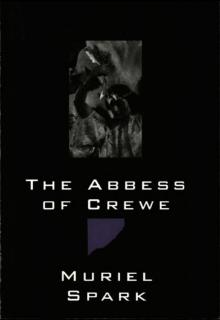 The Abbess of Crewe: A Modern Morality Tale
The Abbess of Crewe: A Modern Morality Tale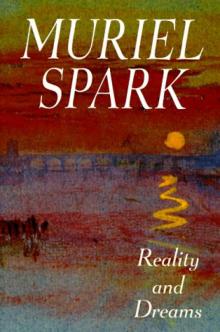 Reality and Dreams
Reality and Dreams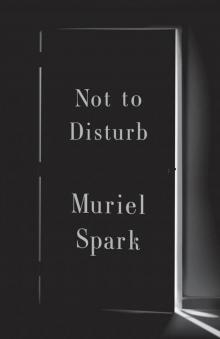 Not to Disturb
Not to Disturb The Prime of Miss Jean Brodie
The Prime of Miss Jean Brodie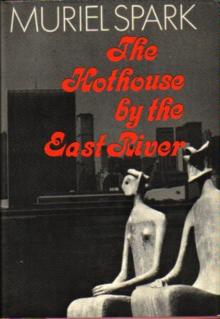 The Hothouse by the East River
The Hothouse by the East River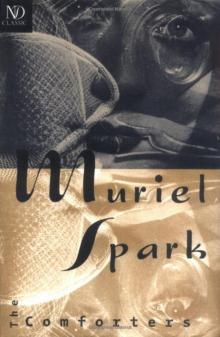 The Comforters
The Comforters (1958) Robinson
(1958) Robinson Unknown
Unknown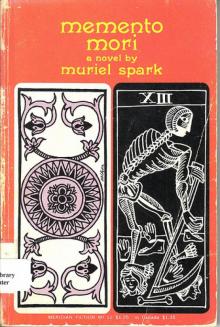 Memento Mori
Memento Mori The Finishing School
The Finishing School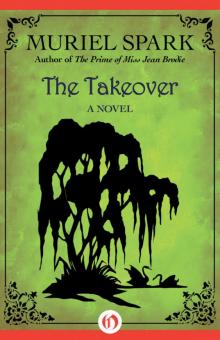 The Takeover
The Takeover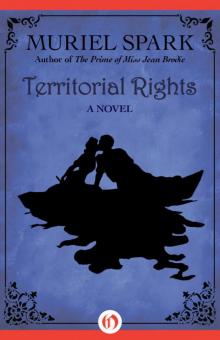 Territorial Rights
Territorial Rights The Complete Short Stories
The Complete Short Stories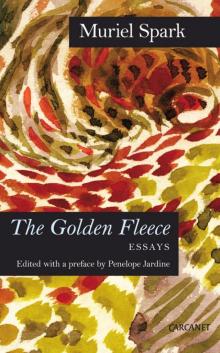 The Golden Fleece: Essays
The Golden Fleece: Essays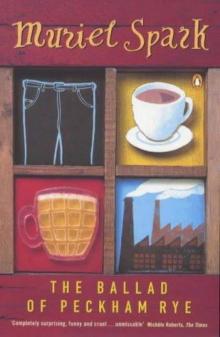 The Ballad of Peckham Rye
The Ballad of Peckham Rye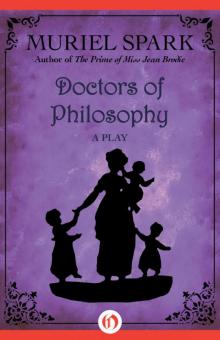 Doctors of Philosophy: A Play
Doctors of Philosophy: A Play The Mandelbaum Gate
The Mandelbaum Gate Loitering With Intent
Loitering With Intent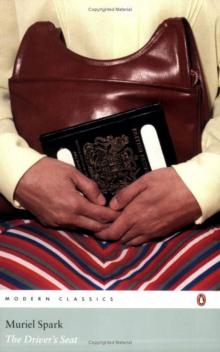 The Driver's Seat
The Driver's Seat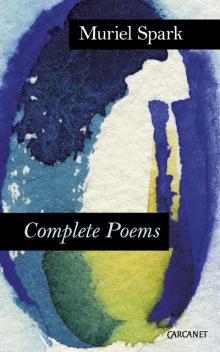 Complete Poems: Muriel Spark
Complete Poems: Muriel Spark Symposium
Symposium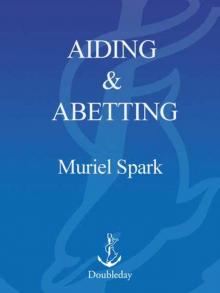 Aiding and Abetting
Aiding and Abetting The Golden Fleece
The Golden Fleece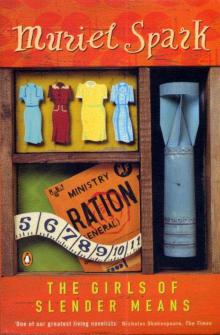 The Girls of Slender Means
The Girls of Slender Means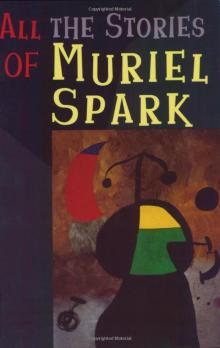 Alice Long’s Dachshunds
Alice Long’s Dachshunds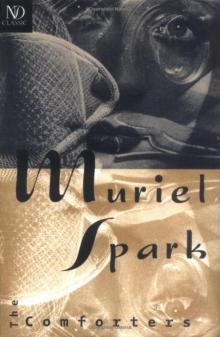 (1954) The Comforters
(1954) The Comforters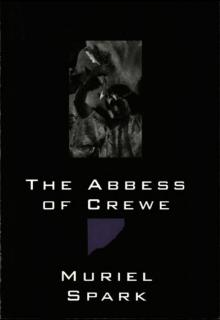 The Abbess of Crewe
The Abbess of Crewe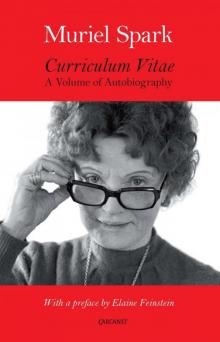 Curriculum Vitae
Curriculum Vitae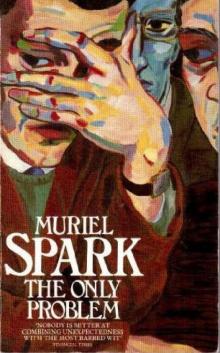 The Only Problem
The Only Problem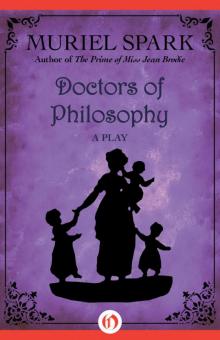 Doctors of Philosophy
Doctors of Philosophy